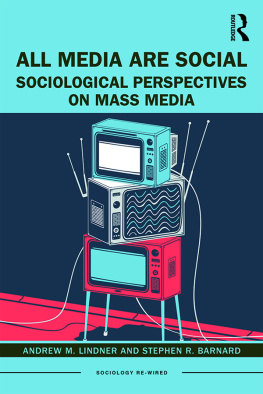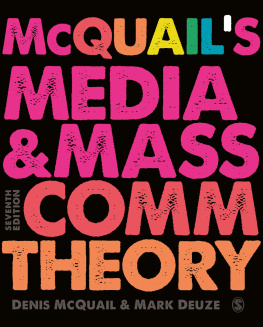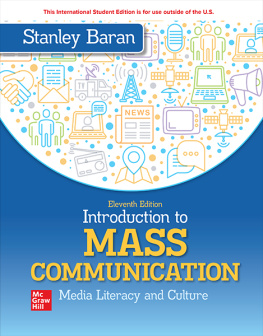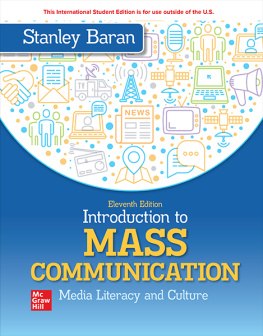

Westview Press was founded in 1975 in Boulder, Colorado, by notable publisher and intellectual Fred Praeger. Westview Press continues to publish scholarly titles and high-quality undergraduate- and graduate-level textbooks in core social science disciplines. With books developed, written, and edited with the needs of serious nonfiction readers, professors, and students in mind, Westview Press honors its long history of publishing books that matter.
Copyright 2014 by Westview Press
Published by Westview Press,
A Member of the Perseus Books Group
All rights reserved. No part of this book may be reproduced in any manner whatsoever without written permission except in the case of brief quotations embodied in critical articles and reviews. For information, address Westview Press, 2465 Central Avenue, Boulder, CO 80301.
Find us on the World Wide Web at http://www.westviewpress.com.
Every effort has been made to secure required permissions for all text, images, maps, and other art reprinted in this volume.
Westview Press books are available at special discounts for bulk purchases in the United States by corporations, institutions, and other organizations. For more information, please contact the Special Markets Department at the Perseus Books Group, 2300 Chestnut Street, Suite 200, Philadelphia, PA 19103, or call (800) 810-4145, ext. 5000, or e-mail .
Designed by Trish Wilkinson
Set in 10.5 point Minion Pro
Library of Congress Cataloging-in-Publication Data
Kidd, Dustin.
Pop culture freaks : identity, mass media, and society / Dustin Kidd.
pages cm
Includes bibliographical references and index.
ISBN 978-0-8133-4913-8 (e-book)
1. Popular culture21st century. 2. Identity (Psychology) and mass media 3. AdvertisingSocial aspects. 4. Mass mediaHistory. I. Title.
HM621.K5293 2014
306.4'0905dc23
2013037175
306.4'0905dc23 2013037175
10 9 8 7 6 5 4 3 2 1
CONTENTS
T his book is dedicated to all of the students in my classes on popular culture since I started teaching in this area in 2001. Their thoughtfulness, creativity, and high expectations have made me the scholar and teacher that I am. I thank them all. Students from my fall 2010 popular culture course played an important role in the collection of the television data, along with graduate students in my spring 2011 seminar on culture. Students from my fall 2012 popular culture course played an important role in the collection of the film data. Dr. Corrine Castro served as a valuable research assistant in the early stages of this project while she was a graduate student at Temple University.
I first engaged the sociology of popular culture as a teaching assistant for Bethany Bryson. Bethany provided a road map through this exciting terrain that is evident throughout this book. I also thank my other intellectual role models, Sarah Corse, Sharon Hays, and Julia Ericksen.
Eric Crawford produced the wonderful illustrations in this book. The team at ChatterBlast Media guided me gently into the world of social media.
The team at Westview was great to work with. Leanne Silverman and Evan Carver played particularly big roles in moving this project forward.
And finally, thank-you to all of the creative professionals, devoted fans, and rigorous scholars who demand that we take popular culture seriously. You are the true pop culture freaks!
REVIEWERS
We would like to thank the following peer reviewers for their time and comments toward making this a better book:
Rhonda E. Dugan, California State University, Bakersfield
Celestino Fernndez, University of Arizona
Joshua Gamson, University of San Francisco
Stephen P. Hagan, McKendree University
Danielle Hedegard, Boston College
Andrew R. Jones, California State University, Fresno
Anne Lincoln, Southern Methodist University
Ryan Moore, Florida Atlantic University
Lori Waite, Tennessee Wesleyan College
Lorna Lueker Zukas, National University

Image 1.1. Amber Riley, who plays Mercedes Jones on the Fox television show Glee (SOURCE: EVERETT COLLECTION).
THE SOCIOLOGY OF GLEE
Hold up your right hand. Form a right angle with your thumb and index finger while folding the other three fingers down. Keeping that shape, place the back of your hand against your forehead and look in the mirror. Loser! That is what you have just called yourself. If you were a character on the Fox television show Glee, you would deserve a slushy. In case you never saw the show, Glee is a dramedy about a high school chorus formed by a group of (mostly) losers, assembled by a frustrated Spanish teacher named Will Schuester. Whenever these so-called losers start to achieve some modicum of success or even popularity, they are quickly cut down to size by a jock dumping a red slushy on them. Glee deliberately explores what it means to be a loser in contemporary American society, both for high school kids and for adults like Will Schuester.
depicts Mercedes Jones, one of the founding members of New Directions, the glee club at William McKinley High School. Is Mercedes a loser? Shes a beautiful woman with a tremendous voice. Sure, she has a larger body type than is glorified on television and in magazines, but no one really looks like those women anyway. She is a black woman in a majority white school, but McKinley High has plenty of black students, many of whom are not outcasts in the least. Maybe calling Mercedes a loser is unfair. But loser certainly describes how she feelsnot about her character, but about her position within the hierarchy of the high school. Loser also becomes a rallying cry for Mercedes and the other glee club members, who embrace the term as a description of what makes them unique and special in a world that turns everyone into cookie-cutter cheerleaders and football stars.
Glee presents us with an array of archetypes for the loser. Mercedes Jones is the curvy black woman. Rachel Berry is the awkward, artsy Jewish girl. Artie Abrams is the wheelchair-bound nerd. Tina Cohen-Chang is the shy, stuttering Asian. Kurt Hummel is the obviously gay white kid with flamboyant fashion taste. Santana Lopez is the loud, angry Latina from Lima Heights Adjacent.
LOSERS, STRANGERS, AND FREAKS
Losers, freaks, misfits, cripples, and queers: the world of popular culture has a way of telling us that we do not fit in, then turning around and selling us a ticket to conformity, to the pop culture prom with a gorgeous date. But the ticket is always a counterfeit; we never get into the prom, at least not for long, and we have to buy yet another ticket. Unless we fight back, organizing our own alternative prom and turning around the weapons of mass culture.
We might compare the loser in Glee to the stranger in a 1908 essay by the early sociologist Georg Simmel. He begins The Stranger with a discussion of wandererstraveling merchants in particularwho roam into a new community, bringing with them an awareness of everything that is beyond and outside of that community. Simmel is most intrigued by the wanderer who then lingers, settling into his surroundings, but always being identified as an outsider, someone who never attains full membership in the community because he is not organically a part of it. The persistent presence of this stranger provides for the larger community what Simmel calls a union of closeness and remoteness involved in every human relationship... an element whose membership within the group involves being both outside it and confronting it (2010, 302303).
Next page





![David Schmid (editor) - Violence in American Popular Culture [2 volumes]](/uploads/posts/book/262757/thumbs/david-schmid-editor-violence-in-american.jpg)


